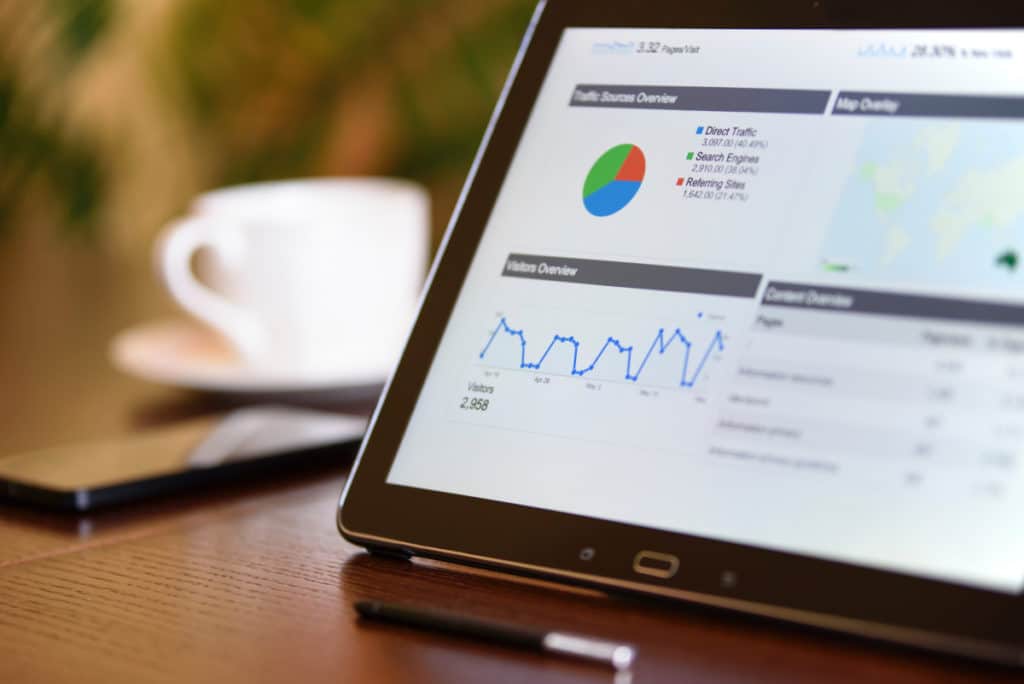6 call center analytics guaranteed to help improve business outcomes

Call center analytics creates a unique opportunity for businesses to monitor, analyze and improve different call center metrics, e.g. agent efficiency and performance, customer loyalty, and sales rates.
Over the past few years, the words big data, analytics, and cloud have become buzzwords of today’s business world. Modern call centers have increasingly opted for advanced call center analytics tools to keep customers happy and anticipate their needs. To better understand how the tools work and how to drive value for your call center, keep on reading.
What are call center analytics in the first place?
Call center analytics is a set of metrics that call centers use to quantify and define their KPIs. These analytics can measure something as finite as the average number of time agents spend on the phone to something as amorphous as customer happiness.
There are a variety of advanced analytical tools that modern call centers frequently make use of as well. Among them are speech analytics tools, which can track to tone and cadence of a speaker and use that data to determine their mood and level of satisfaction with your customer service, among other things. More on these types of analytics tools later.
Needless to say, they’re a powerful tool and one that’s integral to effective call center management. Below we’ll get into some of the reasoning behind that fact.
Choose the best call center software
Why you should leverage the power of call center analytics
There are plenty of reasons why you should make call center analytics a key part of your management strategy. Here are just a few.
Improve your customer interactions
Nowadays, keeping customers satisfied is more important than ever before. Businesses that don’t listen to their clients can easily lose them. Do your callers complain about being on hold for too long, having to explain their problem to several different agents, or suffering a poor resolution time? You can leverage comprehensive call center analytics to turn these problems into opportunities.
For example, if you look at the number of calls coming into your call center by the hour, you may find out that the busiest time is between 4 and 6 pm. This allows you to ensure sufficient staffing levels and reduce wait times. The result is clear – less stressed agents and happier customers.
Make data-driven decisions
With comprehensive data from call center software, businesses can make better data-driven decisions and learn from real customer behaviors to improve their performance. By analyzing valuable customer information, you can also streamline your workflows and improve your forecasting. This means that clients who call your call center get the customer experience they expect without any glitches.
Analytics for better agent training and evaluation
Smart call centers make a lot of effort to optimize their training and onboarding models. Analytics can help businesses analyze the performance of their most successful call center agents and use the data to modify their training plans.
Many call center agents complain that traditional approaches to evaluation of their performance are unfair. This is because agent performance is often assessed based on their supervisor listening to a sample of random calls. Using comprehensive analytics that keeps track of all customer interactions allows managers to measure performance objectively against agreed parameters.
6 types of call center analytics
Modern call centers employ many advanced analytics tools on a daily basis. Here’s a brief description of some of the most popular ones.
Speech analytics: these analytics measure the tone and cadence of speakers’ voices on the phone, gleaning their mood and overall satisfaction with your customer service, among other things.
Text analytics: these tools analyze text passages, looking for keywords that shed light on the author’s motivation and intent. They’re especially useful for analyzing large swaths of text across social media platforms.
Predictive analytics: predictive tools allow call center agents to view a customer’s information before picking up the call. They help companies optimize their inbound and outbound call center efforts, and generally save agents a ton of time.
Desktop analytics: these analytics tools allow managers to monitor their agent’s behavior on the computer. For example, they can track which applications an agent uses during work hours, which can be especially useful for managers of remote working teams.
Cross-channel analytics: cross-channel analytics can track the entirety of a conversation between a customer and your business, regardless of which platforms the conversation may take place on. It’s a helpful tool for keeping track of your customers’ needs and making sure they are met in a timely fashion.
Impact of call center analytics
Call center analytics paint a detailed portrait of a call center’s performance over time. They effectively highlight those areas that need the most attention, making managers’ jobs a whole lot easier. But which ones are best for your business? Read on to find out.
Which analytics tool to choose?
Regardless of the size of your call center, advanced cloud-based call center software can help you analyze customer interactions across all channels to develop customer-centric strategies.
CloudTalk is a call center software offering comprehensive real-time call center statistics and historical metrics, e.g. total number of inbound and outbound calls, number of unanswered calls, service level, average call duration, average wait time or call history. You can view all these data by a date range or by agent and you can even create your own custom reports to fit your needs.
And the final message? Modern contact centers operating on cloud-based software with the right call center analytics can use data to measure the success of their business and accelerate growth.
























